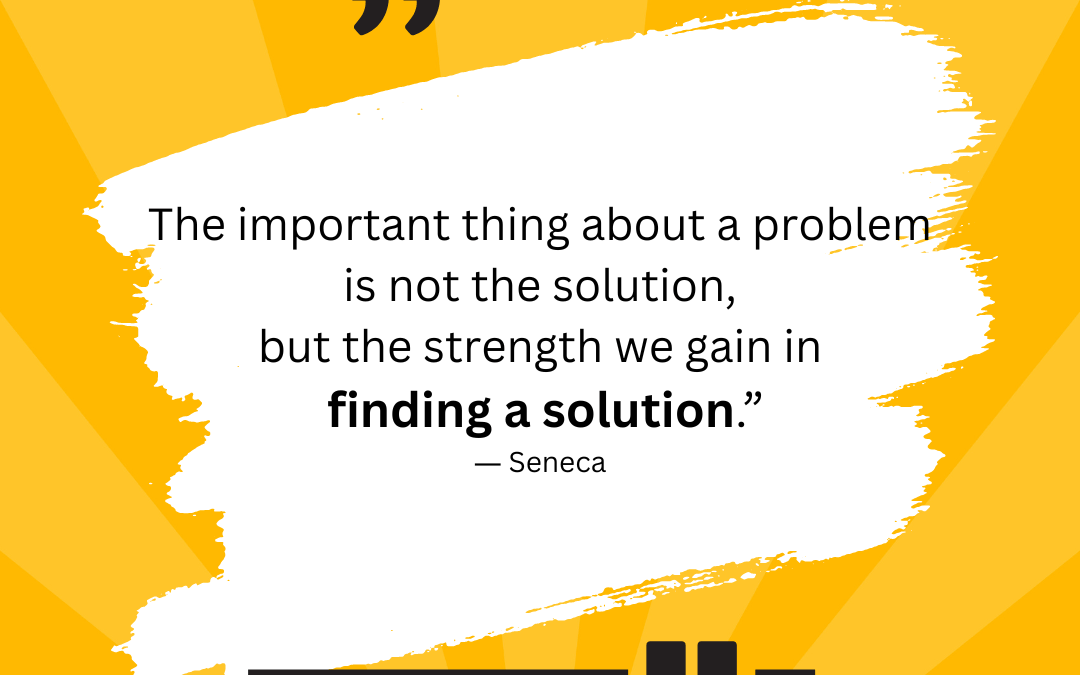
1 min readConflict Or A Problem?
by Guy Gage | May 28, 2023 | Business, Leadership, Personal Management

Conflict Or Problem
How you view a situation determines your mental and emotional state about it and drives certain behaviors that either help or hinder finding solutions. Whenever you encounter a disagreement with a colleague or client, do you view it as a conflict or a problem?
Viewing a situation as a conflict tends to promote adversarial thinking, win-lose outcomes, and a confrontational approach. But if you perceive a situation as a problem to be solved, it fosters a cooperative mindset, constructive emotions, and effective communication.
The Difference
Here are some key differences that make a difference.
Mindset: Viewing something as a conflict often evokes a win-lose mentality, where one party’s gain is perceived as the other party’s loss. This mindset can lead to adversarial thinking, defensiveness, and limited possibilities for collaboration. On the other hand, perceiving something as a problem to be solved promotes a more open and cooperative mindset, emphasizing the search for mutually beneficial solutions.
Emotional Response: A conflict mindset tends to trigger strong, unhelpful emotions such as anger, frustration, or resentment. These emotions can hinder effective communication, rational thinking, and creative problem-solving. Alternatively, approaching something as a problem to be solved allows for a more constructive emotional response, fostering curiosity, resilience, and a willingness to explore different perspectives.
Communication and Collaboration: When we view a situation as a conflict, communication tends to be confrontational or passive-aggressive, with a focus on asserting positions and defending interests. This can lead to a breakdown in collaboration and hinder the search for common ground. By considering something as a problem to be solved, communication becomes more constructive, emphasizing active listening, empathy, and a shared goal of finding solutions.
Problem-Solving Strategies: A conflict mindset often prioritizes competing and defeating the other party, leading to adversarial tactics such as manipulation, coercion, or power plays. In contrast, perceiving something as a problem to be solved encourages a collaborative problem-solving approach. It promotes the use of negotiation, compromise, brainstorming, and creative thinking to find win-win solutions.
Choose Problem Over Conflict
Ultimately, adopting a problem-solving mindset allows for a more constructive and positive approach to challenges. When you are cross-ways with someone, you benefit by perceiving it as a problem to solve together. It leads to better outcomes and improved relationships compared to a conflict-oriented perspective.
Read Related Blogs:
Igniting the Spark
In February, a senior manager attended our Leading Your Team course. The program explores how managers can better understand and lead their team members by recognizing different working and relational styles. For him, this experience marked a turning point. He walked...
Leading with Certainty: Anchoring Leadership in Vision and Values
Effective leadership is grounded in the certainty of what is known: the long-term vision, enduring values, and guiding principles that define an organization’s identity. In a recent coaching conversation with a senior leader navigating a period of rapid change, this...
Courageous Leadership: Understanding Fear in Times of Change
In the midst of writing last week’s Monday message, I was preparing to facilitate a session titled Courageous Leadership: Navigating Change, Fear, and Uncertainty. During that session, one of the attendees questioned the use of the term fear. She didn’t feel that fear...



